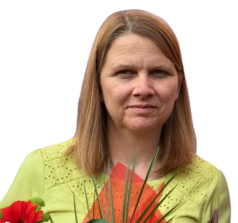
Crossing cultures
Adopted children are vulnerable and need a strong start in their new families. As a paediatrician and designated doctor for looked after children, I've seen the impact of post-adoption depression (PAD) on parents and children. Unfortunately, PAD has played a role in some serious safeguarding cases in the UK
My Churchill Fellowship allows me to study how different agencies address PAD, specifically in the United States, and support adoptive parents. I aim to bring these insights back to the UK to improve adoption processes and help adoptive families thrive.
I’m on the second leg of my travels. This time it finds me in the United States of America, and I no longer have the problem with not understanding the people around me, like I experienced in Europe. I am aware, due to enough American TV, that some of the words are not the same. I’m also learning others, for example, I have just discovered what a “half bathroom”is. With no particular language difficulties, I can now observe much more closely the difference in cultures.
I don’t want to make sweeping statements about other people or groups, but from what I’ve experienced so far, there appears to be a high level of politeness and positivity in the way people address each other. The “guest” is made to feel extremely welcome and honoured. “Ma’am” really is used as a respectful way to address me!
In Europe, I sometimes felt a bit perplexed and unsure, but here in the States I have occasionally felt quite vulnerable in situations I have found myself in. To some extent, this may be due to media stories about being in the wrong “hood” or wrong “side of the tracks”.
Some of this vulnerability may be due to being a pedestrian in cities designed for cars.
European expectations of buses and trains being readily available are being challenged. As a European I am used to readily available and well used public transport, which is not always the case in the USA, making independent travel more complex and adding to anxiety. I was misunderstood by someone I was meeting as they were not expecting me to say I was arriving on a bus! So crossing cultures even with a common language can be fascinating and disconcerting at the same time.
Reflecting on my travels so far, I have been thinking about where in my work I cross cultures, and it struck me that being from a health background, children’s social care has a different culture to health. Health and children’s social care often think we speak the same language, but actually we come from very different backgrounds and similar but not identical principles; different evidence base, different hierarchies and decision-making pathways, different understanding of data and outcomes. And we are not often enough cognisant of it. Sometimes this leads to projects stalling or children’s plans being unclear. It can lead to disharmony and disagreement. When this happens, we might do well to look again at our joint working and unpick the assumptions we have made about language and culture. We need to help each other to negotiate the other’s culture effectively and make the “guest” feel welcome!
What about when the “guest’s” status moves into a long-term relationship or a cohabitation? The culture differences will still need to be explored, and it will be even more important to draw on the strengths of each culture; to prevent one partner from being passive, silent, or there merely out of politeness.
This is described by the term ‘intercultural communication’ which focuses on the recognition and respect of those with cultural differences with the goal of mutual adaptation between the two. There is a recognition of difference but a drawing on the strengths this brings and the interchange that happens leading to mutual flourishing. I think my journey in working in health with children’s social care may have a way to go yet.
Dr Lynn Snow, Churchill Fellow & Community Paediatrician working as Designated Doctor for looked after children for Leicester, Leicestershire and Rutland
